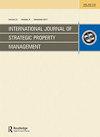卢旺达的战略管理做法和清洁能源部门绩效;卢旺达基加利市一例Bboxx病例
IF 1.7
4区 管理学
Q3 MANAGEMENT
International Journal of Strategic Property Management
Pub Date : 2023-11-07
DOI:10.53819/81018102t5277
引用次数: 0
摘要
本研究调查了战略管理实践对基加利市Bboxx卢旺达绩效的影响。具体而言,本研究旨在确定战略制定、战略实施和战略控制如何影响Bboxx卢旺达的绩效。本研究采用描述性研究设计来实施研究策略。分别采用问卷调查和文献回顾的方式收集第一手资料和第二手资料。采用描述性研究设计,采用定性和定量数据混合的方法,采用问卷调查的方式收集数据。研究参与者包括位于卢旺达基加利的Bboxx非洲总部(HQ)办公室的管理层员工,样本量为80名受访者,采用人口普查方法选择。收集的结果采用描述性统计分析,使用均值和标准差进行分析,使用Pearson相关(r)和多元线性回归分析进行推理统计。结果以图表、表格和叙述的形式呈现,因为定性数据是用专题分析进行分析的,这要求研究在叙述中呈现定性结果。研究发现,43.0%的受访者同意Bboxx的愿景,并且有相当一部分人认识到SWOT分析的重要性。而客户满意度有最小的相关性,SWOT分析显著影响新产品的开发。资源配置对收入增长的影响不显著,但与新产品开发呈弱正相关。组织结构没有推动增长或客户满意度,突出了潜在的改进领域。此外,组织文化和沟通渠道与其各自的指标表现出弱关联,表明需要重新评估。结果表明,虽然一些战略要素是有效的,但其他要素,特别是在组织结构和沟通方面,需要改进。该研究建议组织采用有效的战略管理实践,特别是随着基准的发展。此外,该研究还强调了向管理人员和非管理人员明确提出与管理有关的因素的重要性。通过这样做,员工可以更好地了解管理风格,这反过来又可以指导他们实现组织目标的努力。研究强烈建议加强管理人员和非管理人员之间的沟通渠道。关键词:战略管理实践,清洁能源,绩效,Bboxx,卢旺达本文章由计算机程序翻译,如有差异,请以英文原文为准。
Strategic Management Practices and Clean Energy Sector Performance in Rwanda; A Case of Bboxx Rwanda in Kigali City
This study investigated the effect of strategic management practices on the performance of Bboxx Rwanda in Kigali city. In particular, the study aimed to determine how strategy formulation, strategy implementation, and strategy control affect the performance of Bboxx Rwanda. The study used a descriptive research design to implement the research strategy. Both primary and secondary data was collected using a questionnaire and document review respectively. The descriptive research design with a mixed approach of qualitative and quantitative data were used to collect data by the use of questionnaire. The study participants comprised employees at the managerial level at the Bboxx Africa headquarter (HQ) office in Kigali, Rwanda with the sample size of 80 respondents selected using census method. The collected results were analyzed using descriptive statistical analysis with the use of mean and standard deviation, and inferential statistics by the use of Pearson correlation (r) and multiple linear regression analysis. The results were presented in figures, tables, and narratives because the qualitative data were analyzed with the use of thematic analysis which require the study to present the qualitative results in the narrative. The study found that 43.0% of respondents agreed with Bboxx's vision, and a notable portion recognized the importance of SWOT analysis. While customer satisfaction had a minimal correlation, the SWOT analysis significantly influenced new product development. Resource allocation did not notably impact revenue growth but had a weak positive correlation with new product development. The organizational structure didn't drive growth or customer satisfaction, highlighting potential areas for improvement. Additionally, organizational culture and communication channels showed weak associations with their respective metrics, indicating a need for re-evaluation. The results suggest while some strategic elements are effective, others, especially in organizational structure and communication, require refinement. The study recommends that organizations adopt effective strategic management practices, especially as benchmarks evolve. Furthermore, the study emphasizes the importance of clearly presenting factors related to management, both to managerial and non-managerial staff. By doing so, employees can gain a better understanding of the management style in place, which can, in turn, guide their efforts towards realizing organizational goals. The study strongly recommends enhancing communication channels between managerial and non-managerial staff. Keywords: Strategic Management Practices, Clean Energy, Performance, Bboxx, Rwanda
求助全文
通过发布文献求助,成功后即可免费获取论文全文。
去求助
来源期刊
CiteScore
4.00
自引率
18.50%
发文量
23
审稿时长
15 weeks
期刊介绍:
International Journal of Strategic Property Management is a peer-reviewed, interdisciplinary journal which publishes original research papers. The journal provides a forum for discussion and debate relating to all areas of strategic property management. Topics include, but are not limited to, the following: asset management, facilities management, property policy, budgeting and financial controls, enhancing residential property value, marketing and leasing, risk management, real estate valuation and investment, innovations in residential management, housing finance, sustainability and housing development, applications, etc.

 求助内容:
求助内容: 应助结果提醒方式:
应助结果提醒方式:


